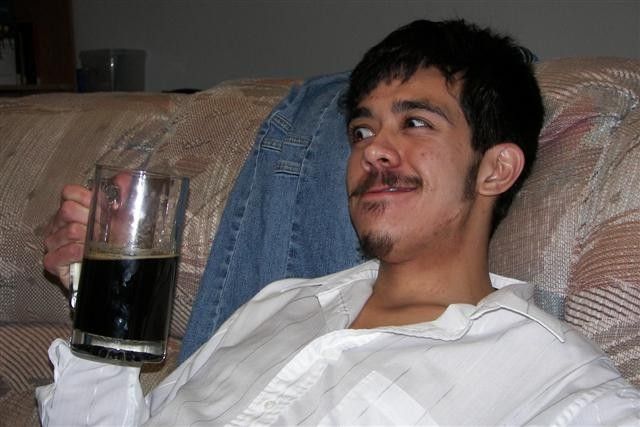Submission #2
"Of the good in you I can speak, but not of the evil. / For what is evil but good tortured by its own hunger and thirst?"The scoundrel lives as a law unto himself. Such men, castigated and criticized, the inhabitants of the wasteland of humanity itself. This, itself, always with a hazy connotation of negativity, of disgust, or, at the very least, a consternation. There is no freedom like the freedom of bondage, perhaps. In leaving one master, another is always tacitly accepted; the faces and rules change, the status, hardly. Why is it, then, that one speaks of the scoundrel with negativity? He is of the same genera as the self-created man - a work of art expressed in humanity itself, a stylized version of the human species, an expression of an ideal. Still, he is lambasted if he chooses to be his own lawgiver, being chastised, told, “submit, it is for the best,” and, “ you are troubled, allow yourself the yoke calmly, and find your happiness.” Mere weakness, misunderstanding.
Forced to submit to a yoke, one is troubled in all cases; no escape is possible. Nonetheless, forced to submission, a man is more noble, stronger, greater as a whole if he resists the yoke; it is a sign of strength for the beast of burden to resist. He may die in his very resistance, but one must appreciate the spirit embodied in such a noble activity. Such is this pioneer of the boundaries of society and humanity. He creates his own world, his own self, his own definition of self, world, morality; he becomes god in his own right. Perhaps this is where the personal notion of god originated. Certainly, there is an awesome power embodied in this ability, the fantastic and great power that is retained, if only one is willing to resist, to embody one’s entire life as rebellion itself. Life ends when rebellion ends, this is at the heart of the scoundrel’s beliefs.
To espouse any sentiments concerning good or evil is far too simplistic in this case; what is good to one is different to another, as is said. Yet, even this is too simple: there can be no understanding without personal knowledge, this is known full well. The knowledge of good and evil necessarily carries a taint, but also an incredible power. The Stoics and Epicureans believed the good lied in a freedom from distress, the Cyrenaics, in immediate sensory pleasures; the scoundrel knows better. The good lies in all - all good is to be found in the immediate, certainly, but, not only must one anticipate the good, but the evil and unpleasant as well. Just as all good is passage to ill, so it is conversely; one must suffer their ills not cowardly, but with strength of will. All action and thought is a meditation of will on the world as can be experienced; one cannot truly live without a resolute will, to do so without is something less than life, some manner of play-acting. The scoundrel knows this. He acts accordingly.
He cannot say that everything that he does is done with the best intentions, nor with good result, conscience, hope, or otherwise; what can be said, is that one must do all on one’s own terms. This is the consolation of such living, that one can at least hold oneself accountable for all actions that one has taken. There is no guilt to be found here. Whatever one might say about this man in moralistic terms, there is none more honest than he; therein lies the strength and nobility of this kind. There is something quite hopeful in this.
- Previous: Submission #1
- Next: If You Want Apples, Buy Apples
